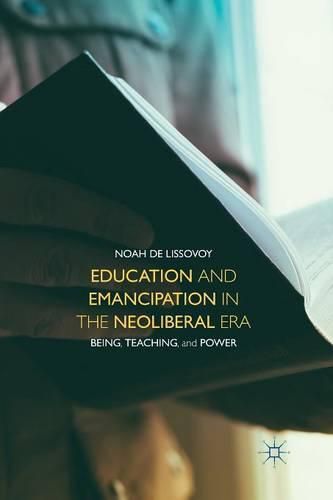Readings Newsletter
Become a Readings Member to make your shopping experience even easier.
Sign in or sign up for free!
You’re not far away from qualifying for FREE standard shipping within Australia
You’ve qualified for FREE standard shipping within Australia
The cart is loading…






Focusing on processes of austerity, accountability and punishment, Noah De Lissovoy investigates the way that power works in society and schools in the present. Challenging common assumptions about the role of ideology, the relationship between racism and capitalism, and the meaning of resistance, Education and Emancipation in the Neoliberal Era demonstrates how politics and pedagogy involve a basic struggle of over ways of being and knowing. In an original analysis that moves from classroom spaces to global contexts, De Lissovoy shows how power acts simultaneously to produce and to injure, and he demonstrates the ways in which human beings ubiquitously resist. Against and beyond neoliberal understandings of education and public life, this book develops a theory of emancipation that emphasizes the basic agency and autonomy of students and communities.
$9.00 standard shipping within Australia
FREE standard shipping within Australia for orders over $100.00
Express & International shipping calculated at checkout
Focusing on processes of austerity, accountability and punishment, Noah De Lissovoy investigates the way that power works in society and schools in the present. Challenging common assumptions about the role of ideology, the relationship between racism and capitalism, and the meaning of resistance, Education and Emancipation in the Neoliberal Era demonstrates how politics and pedagogy involve a basic struggle of over ways of being and knowing. In an original analysis that moves from classroom spaces to global contexts, De Lissovoy shows how power acts simultaneously to produce and to injure, and he demonstrates the ways in which human beings ubiquitously resist. Against and beyond neoliberal understandings of education and public life, this book develops a theory of emancipation that emphasizes the basic agency and autonomy of students and communities.